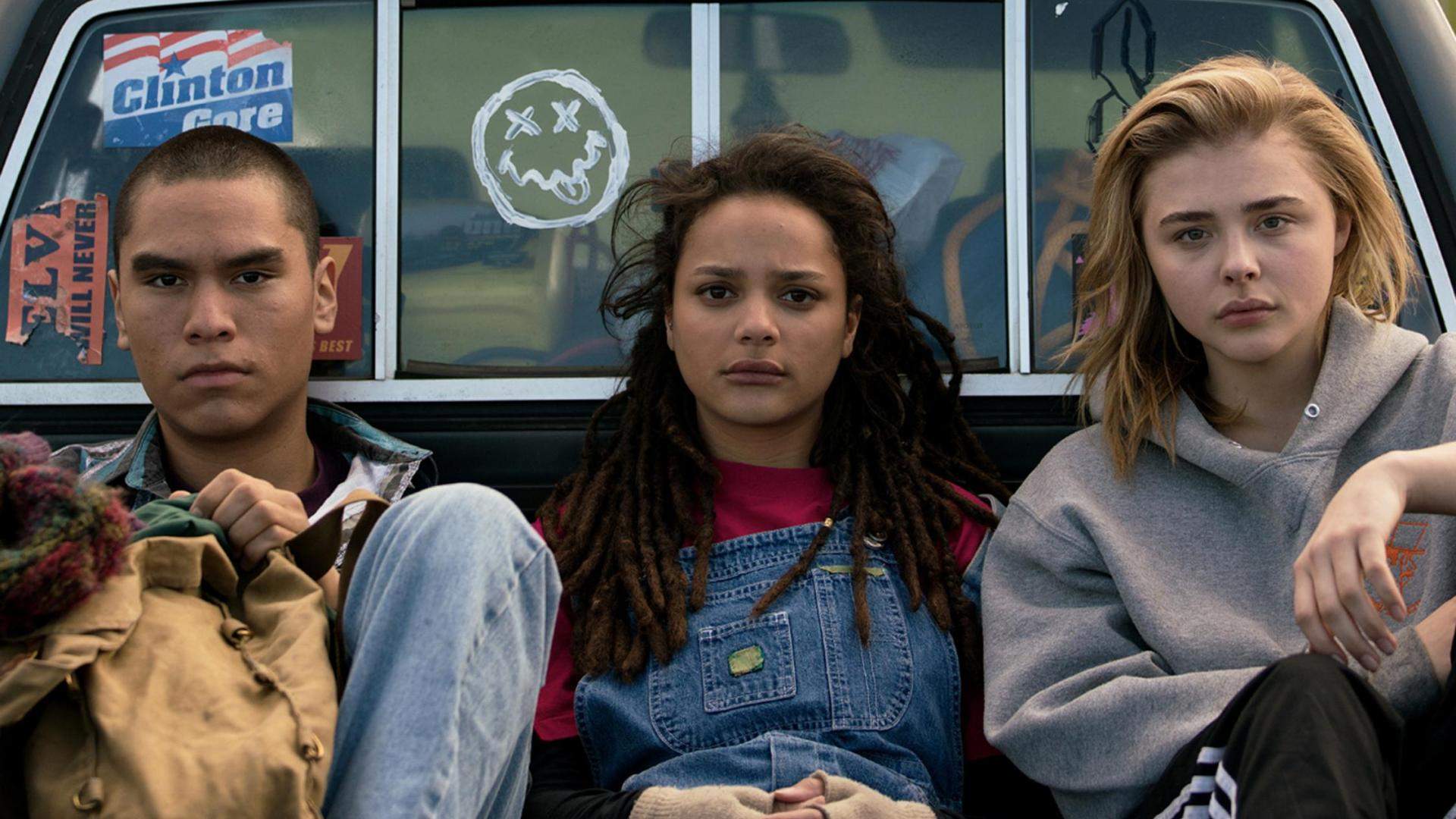The Miseducation of Cameron Post
Chloë Grace Moretz turns in a career-best performance in this quietly revelatory look at life inside a gay conversion camp.
Overview
Sent to gay conversion camp after being caught with another girl on prom night, Cameron Post (Chloë Grace Moretz) lies on the ground with one of her fellow campers. They're taking part in a class exercise, but when Cameron doesn't express herself in the way that's expected, she's accused of being hostile. More than that, she's told that by remaining more reserved than her classmates — by simply being who she is — that she's attacking everyone around her. While hardly one of The Miseducation of Cameron Post's most dramatic moments, the scene perfectly encapsulates the antagonism that is often directed towards the queer community just for existing.
Adapting the applauded novel of the same name and earning the Grand Jury Prize at this year's Sundance Film Festival for its efforts, The Miseducation of Cameron Post deploys the tactics mentioned above on several occasions. The film includes scenes that appear ordinary within the narrative, and don't always stand out when the end credits roll, yet still speak to something broader. In another example, Cameron peels potatoes in the camp kitchen. The 4 Non Blondes hit 'What's Up?' starts playing on the radio, and Cameron begins to sing along. She's timid at first, but as the song continues — complete with a chorus that screams "what's going on?", as well as lines about praying for a revolution — her enthusiasm grows.
In specific scenes and in its overall mood, The Miseducation of Cameron Post is compassionate and sensitive — not to the concept of gay conversion therapy, but to teens who are chastised for deviating from society's narrow idea of normality. Focusing on 16-year-old Cameron, the film explores the struggles faced by those packed off to the strict God's Promise facility as they're lectured about gender confusion and instructed to bury their urges. Under the watchful eyes of Dr. Lydia Marsh (Jennifer Ehle) and her supposedly saved brother (John Gallagher Jr.), attendees are taught how to be more stereotypically feminine or masculine. Girls are pushed away from sports, and guys with long locks are given haircuts. Unsurprisingly, Cameron is far from happy to be there, although she has like-minded company in the world-weary Jane (Sasha Lane) and the thoughtful Adam (Forrest Goodluck).
While her film is set in the 90s, writer-director Desiree Akhavan wades into topical territory with her follow-up to 2014 comedy Appropriate Behaviour. It's timely, too, with The Miseducation of Cameron Post the first of two high-profile titles about gay conversion heading to screens before the year is out. (The second, Boy Erased, stars Lady Bird's Lucas Hedges, with Nicole Kidman and Russell Crowe as his parents.) That said, it's not the movie's subject matter that makes it revolutionary, but its approach. Although it details a horrendous practice, this is a quiet film. It's not sharply subversive like the similarly themed But I'm a Cheerleader from 1999, and it doesn't need to be. Rather, with a big heart and some well-deployed low-key humour, The Miseducation of Cameron Post demonstrates unshakeable strength and defiance — just as its eponymous figure does when she's torn in multiple directions by her feelings, yet refuses to submit to anyone else's ideas about her sexuality or identity.
It's little wonder, then, that Akhavan rarely takes the camera away from Moretz's face. When you're making a movie that's so steeped in the emotions of its protagonist, that's an understandable choice. Given that Moretz turns in a performance that's more nuanced and textured than anything else across her career, it's doubly so. The Miseducation of Cameron Post also finds ample time for the excellent Lane and Goodluck, who ensure that their supporting players feel exceptionally well-rounded. It gives other figures their small but important moments too, fleshing out the myriad of ways that places such as God's Promise can do damage. But whether Akhavan is rendering the picture's frames in muted tones that match Cameron's reserved personality, or simply capturing the pain flickering across Moretz's brow, she always adopts her lead character's perspective. This is a movie that gazes with the young woman at its centre, and strives to convey her experience in difficult circumstances, instead of merely looking at her.





